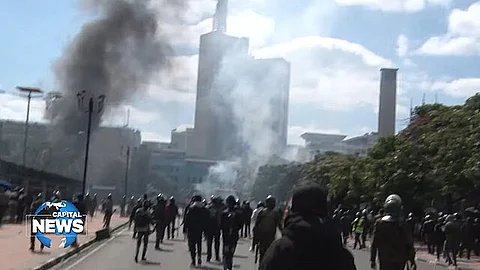

At least 16 people were killed and over 400 injured during nationwide protests marking the first anniversary of Kenya's deadly anti-tax bill demonstrations, according to rights groups. The Kenya National Commission on Human Rights (KNCHR) initially reported eight fatalities from gunshot wounds, while Amnesty Kenya later verified 16 deaths amid police crackdowns using live ammunition, rubber bullets, and tear gas. Kenyatta National Hospital in Nairobi alone treated 56 patients with bullet wounds, while a hospital in Matuu confirmed two protesters died from abdominal gunshots.
Protesters demanding justice for victims of 2024’s demonstrations—where 60 died storming parliament—faced renewed brutality. Police barricaded roads with razor wire and fired tear gas at crowds marching toward President William Ruto’s residence. Authorities ordered TV blackouts, pulling broadcasters KTN and NTV off-air for defying a ban on live coverage. Though a court later suspended the order, internet monitoring group NetBlocks confirmed Telegram restrictions.
The unrest stems from 2024’s Finance Bill, which proposed taxing essentials like bread and sanitary pads amid soaring living costs. Though Ruto withdrew the bill after mass protests, public rage persists over corruption and police violence. Recent weeks saw protests over blogger Albert Ojwang’s death in custody and documented abductions of 80+ government critics. Protesters like Innocent declared: “The youth are unstoppable... We’ve come to fight bad leadership”.
Western embassies condemned Kenya’s use of hired "goons" to attack demonstrators and urged restraint. Medical teams treated hundreds for injuries, with one doctor noting: “We treated 500 wounded—including three officers who attacked us.” Families of victims like Jedidah Ombura, whose son Denzel died after 2024’s protests, still await justice.